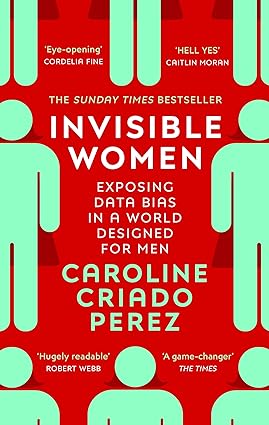In The Critic, Victoria Smith outlines the history of medical misogyny from Aristotle to modern-day “trans healthcare”:
The neglect of female bodies in medicine has a long history. The male-default bias, writes Caroline Criado Perez in Invisible Women, “goes back at least to the ancient Greeks, who kicked off the trend of seeing the female body as a ‘mutilated male’ body (thanks, Aristotle)”:
The female was the male ‘turned outside in’. Ovaries were female testicles (they were not given their own name until the seventeenth century) and the uterus was the female scrotum. […] The male body was an ideal women failed to live up to.
As Criado Perez notes, this bias lives on in male-centric medical research and undifferentiated treatment recommendations. “Women are dying,” she notes, “as a result of the gender data gap.” The belief that there is nothing specifically different about female people — cut a bit here, add a bit there, and we’re the same as men — has led to our symptoms being ignored and our pain dismissed.
Over the past few years, there have been a number of books — Elinor Cleghorn’s Unwell Women, Cat Bohannon’s Eve, Leah Hazzard’s Womb, to name a few — which have aimed to correct the imbalance. This is important both to save lives and ease suffering, and because, on a very basic level, it is insulting for half the human race to have our bodies treated as lesser, imperfect versions of a male ideal. We are more than that. We exist in our own right.
There are many in medicine, however, who still seem to think that Aristotle was right. Last week, for instance, the World Health Organisation announced it would be developing new guidelines into “the health of trans and gender diverse people”. While this might sound positive, as Eliza Mondegreen notes, many of those leading the development group hold highly regressive views about sex, gender and bodies. It is only possible to believe that a person could change sex if you have not given much consideration to the “second” sex at all.
One of the oddities of trans healthcare is that it masquerades as progressive despite having evolved from — and continuing to rely on — an understanding of sex difference which is regressive, male-centric and superficial. Because no one wants to admit it, this has led to a plethora of articles along the lines of “Here’s Why Human Sex Is Not Binary” and “Sex Redefined: The Idea of 2 Sexes Is Overly Simplistic“. While these claim to be adding extra detail and nuance to our understanding, what they do in practice is revert back to privileging the male default. Sex is all so varied, all so different, they tell us, we might as well not bother setting any standards for what counts as “femaleness”. We’re all just human, aren’t we? Only some bodies have tended to be considered more human than others. Rebranding “the male default” “the sex spectrum” is a sneaky way of insisting, once again, that female people are nothing more than males with a few minor tweaks.
This is the new medical misogyny, built on the back of the old version. Unfortunately, because it positions itself as anti-conservative and even pro-feminist, many writers of texts that address the old version feel obliged to go along with the new. It’s not difficult to see why. Who wants their work to be undermined by bad faith accusations of transphobia? Isn’t it easier just to say “it’s clear that trans women are women” — as Bohannon has done — on the basis that at least this will enable you to challenge the centring of male bodies elsewhere?




